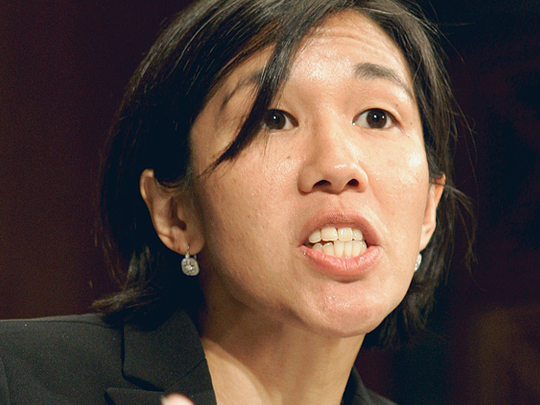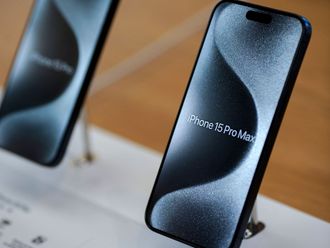
Washington: The Obama administration is weighing the merits of taking China's censorship of Google to the World Trade Organisation as an unfair barrier to trade, a move that could further raise diplomatic tensions.
The US Trade Representative's office is consulting with industry groups about China's internet policies, spokeswoman Carol Guthrie said. Two groups with links to Google, the Computer & Communications Industry Association and the First Amendment Coalition, have told the trade office that China's restrictions on web access and content discriminate against US internet companies and online commerce.
"There is a little bit of a Cold War going on here," said Michael DeGolyer, a professor of government and international studies at Hong Kong Baptist University. "This is a way of putting pressure on China in a way that is going to be popular with many countries."
Google's problems in China have been at the forefront of a series of diplomatic spats with the US that also include a proposed $6.4 billion (Dh23.5 billion) arms sale to Taiwan. China's Foreign Ministry Spokesman Qin Gang said Tuesday the US is "entirely" to blame for strained ties and should respect the Asian nation's "core interests."
Going to the WTO is "well worth consideration," Nicole Wong, deputy general counsel of Google, operator of the most popular internet search site, told reporters after a congressional hearing in Washington Tuesday. Using censorship "in a manner that favours domestic internet companies goes against basic international trade principles," Wong told lawmakers.
Infiltration
Google will stop censoring results as required by the government in China, the company said January 12 after what it called an infiltration of its technology and the email accounts of Chinese human rights activists.
The Obama administration sided with Google. Secretary of State Hillary Clinton said January 20 that China is among countries "walling themselves off" from progress by restricting web access.
"We are looking at that," US Trade Representative Ron Kirk said in an interview with Bloomberg Radio on February 23, when asked about the proposal to take a case against China to the WTO, the Geneva-based trade arbiter. "It's less of a trade issue than it is a freedom of information issue."
While going to the WTO would put a spotlight on China's internet policies, it wouldn't be likely to provide a speedy resolution. Trade disputes before the WTO can take two years or more to litigate and appeal.
"It's a shrewd strategy," said Susan Aaronson, a professor of trade policy at George Washington University in Washington. "Yes, it's slower, but you force them to defend this in a public setting, and China is going to look bad."
China is the world's biggest internet market, with 384 million web users at the end of 2009, according to the China Internet Network Information Centre, a government agency that registers online domain names.
China's Ministry of Commerce will closely monitor the issue, said a ministry official who declined to be named, citing policy. The ministry protects the rights of foreign companies in China and they should abide by Chinese laws and regulations, the official said.
The Chinese government has said it doesn't engage in cyber attacks and is itself a victim of breaches of internet security.
The US trade office has asked the First Amendment Coalition to provide more information on a paper it submitted in January outlining legal precedents for attacking China's internet curbs at the WTO, Gilbert Kaplan, the group's lawyer, said in an interview. Google's Wong is on the group's board of directors, and referred to its filing when asked about a potential WTO complaint.
The trade case may not be an easy one to make, said Warren Maruyama, the former general counsel of the US Trade Representative's office.
"Censorship per se is not a violation of the WTO," said Maruyama, a partner at Hogan & Hartson in Washington. "You would have to show the violation of some specific WTO rule."
Authorities in China censor online content deemed critical of the government by shutting domestic web- sites and blocking access to ones based overseas, including those of Facebook and Twitter. It also forces search engines to limit results for terms such as Tiananmen Square, the Beijing landmark where government troops clashed with protesters in 1989.
The two industry groups are arguing to the US Trade Representative's office that the Chinese restrictions on the internet discriminate against US companies while favouring domestic businesses, in violation of commitments China made when it joined the WTO in 2001. China's web filtering and firewall rules act as administrative barriers to compete, and aren't applied in a uniform and impartial way, the groups say.












